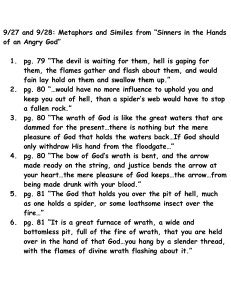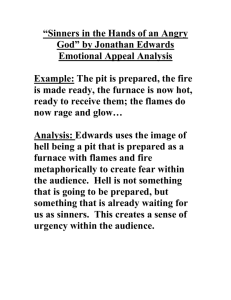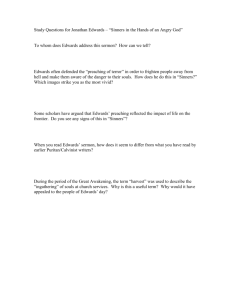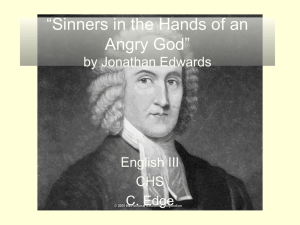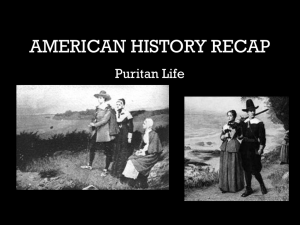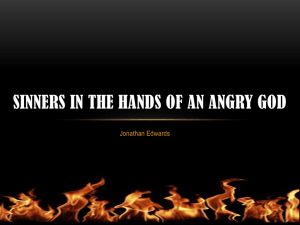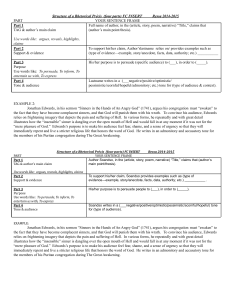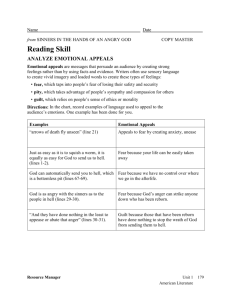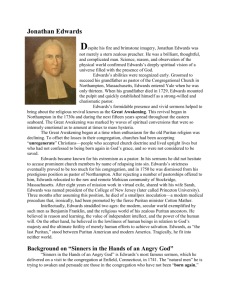Sinners in the Hands of an Angry God: Rhetorical Analysis
advertisement
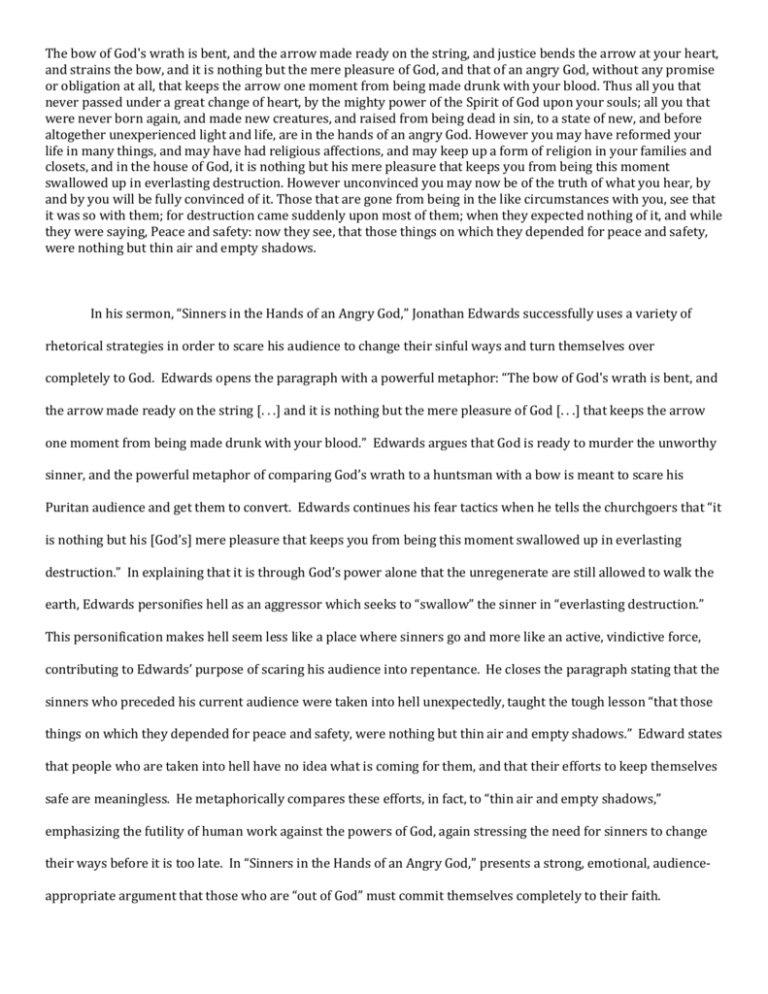
The bow of God's wrath is bent, and the arrow made ready on the string, and justice bends the arrow at your heart, and strains the bow, and it is nothing but the mere pleasure of God, and that of an angry God, without any promise or obligation at all, that keeps the arrow one moment from being made drunk with your blood. Thus all you that never passed under a great change of heart, by the mighty power of the Spirit of God upon your souls; all you that were never born again, and made new creatures, and raised from being dead in sin, to a state of new, and before altogether unexperienced light and life, are in the hands of an angry God. However you may have reformed your life in many things, and may have had religious affections, and may keep up a form of religion in your families and closets, and in the house of God, it is nothing but his mere pleasure that keeps you from being this moment swallowed up in everlasting destruction. However unconvinced you may now be of the truth of what you hear, by and by you will be fully convinced of it. Those that are gone from being in the like circumstances with you, see that it was so with them; for destruction came suddenly upon most of them; when they expected nothing of it, and while they were saying, Peace and safety: now they see, that those things on which they depended for peace and safety, were nothing but thin air and empty shadows. In his sermon, “Sinners in the Hands of an Angry God,” Jonathan Edwards successfully uses a variety of rhetorical strategies in order to scare his audience to change their sinful ways and turn themselves over completely to God. Edwards opens the paragraph with a powerful metaphor: “The bow of God's wrath is bent, and the arrow made ready on the string [. . .] and it is nothing but the mere pleasure of God [. . .] that keeps the arrow one moment from being made drunk with your blood.” Edwards argues that God is ready to murder the unworthy sinner, and the powerful metaphor of comparing God’s wrath to a huntsman with a bow is meant to scare his Puritan audience and get them to convert. Edwards continues his fear tactics when he tells the churchgoers that “it is nothing but his [God’s] mere pleasure that keeps you from being this moment swallowed up in everlasting destruction.” In explaining that it is through God’s power alone that the unregenerate are still allowed to walk the earth, Edwards personifies hell as an aggressor which seeks to “swallow” the sinner in “everlasting destruction.” This personification makes hell seem less like a place where sinners go and more like an active, vindictive force, contributing to Edwards’ purpose of scaring his audience into repentance. He closes the paragraph stating that the sinners who preceded his current audience were taken into hell unexpectedly, taught the tough lesson “that those things on which they depended for peace and safety, were nothing but thin air and empty shadows.” Edward states that people who are taken into hell have no idea what is coming for them, and that their efforts to keep themselves safe are meaningless. He metaphorically compares these efforts, in fact, to “thin air and empty shadows,” emphasizing the futility of human work against the powers of God, again stressing the need for sinners to change their ways before it is too late. In “Sinners in the Hands of an Angry God,” presents a strong, emotional, audienceappropriate argument that those who are “out of God” must commit themselves completely to their faith.
